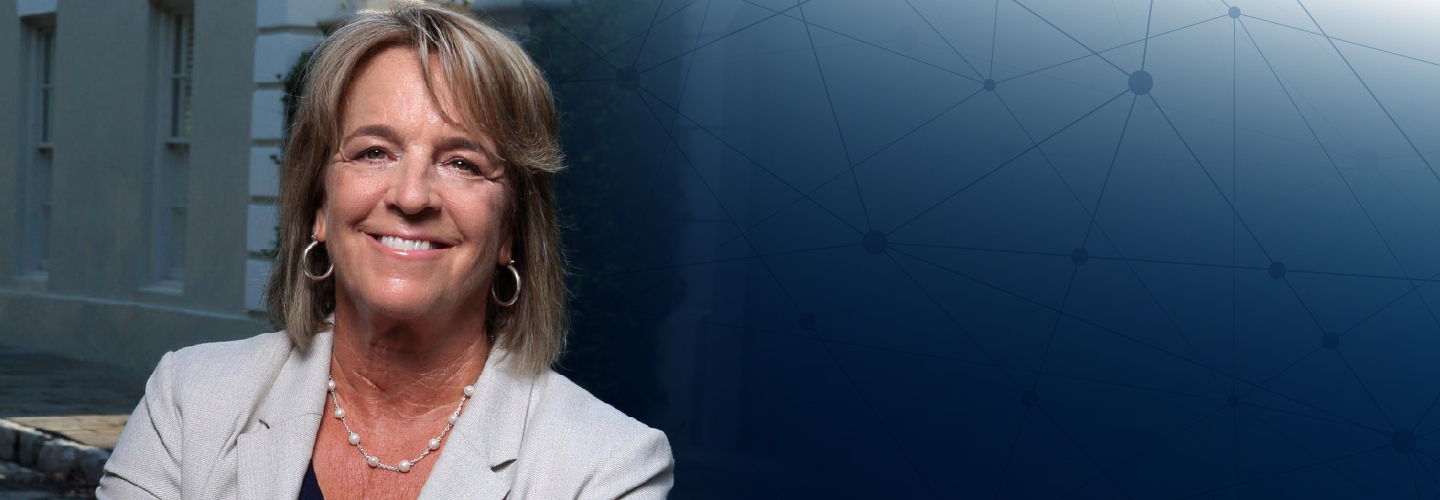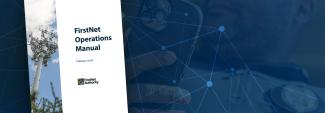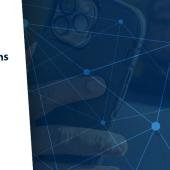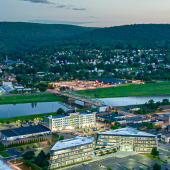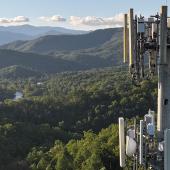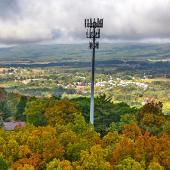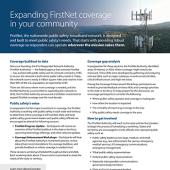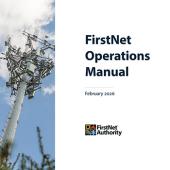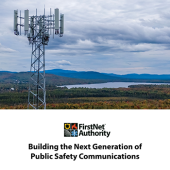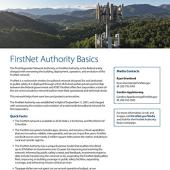Sheriff Kristin Graziano is a seasoned public safety leader with more than 30 years in law enforcement. She has served as the Charleston County Sheriff since 2020, when she became the first woman to be elected sheriff in the state of South Carolina. Prior to her work in Charleston County, she served in Charlottesville, Virginia, with the Charlottesville Police Department. She was appointed to the First Responder Network Authority (FirstNet Authority) Board in October 2021.
We had the opportunity to catch up with Sheriff Graziano to discuss her proudest accomplishments, what’s on the horizon in the next year, how FirstNet supports law enforcement, and her personal approach to public safety.
How did you become involved with FirstNet?
I was elected Sheriff in 2020, and I was honored to be appointed to the FirstNet Authority Board by U.S. Secretary of Commerce Gina Raimondo shortly after that. I’ve personally been a FirstNet user for years, and the peace of mind that comes with having a network that’s designed for public safety’s unique needs is invaluable.
In law enforcement, reliable communication is critically important for coordination and situational awareness when responding to incidents. From my time as a boots-on-the-ground officer to serving as a member of the Charleston County Sheriff's Office SWAT team, I experienced how clear and effective communication could help keep everyone in the situation safe.
I have seen firsthand the challenges officers and deputies face in the field, so as Sheriff, I want to know I can count on my deputies being able to communicate when they need to. Because of that, I am a big believer in the FirstNet Authority’s mission, and I am a big advocate for FirstNet here in Charleston County and across the nation.
What has been your greatest accomplishment as a member of the FirstNet Authority Board so far?
My greatest accomplishment is being a part of the leadership team that supported completion of the initial buildout of the first nationwide network for first responders. I personally witnessed the extraordinary efforts by the FirstNet Authority employees who oversaw the deployment and operation of the network with our partners at AT&T.
I’m learning so much from everybody on the FirstNet Authority Board, and I’m really impressed to see all of the different industries and public safety disciplines come together to ensure we’re making the best decisions for public safety and the network. It’s this huge collaboration — folks working together for the sole benefit of getting a communications network where we need it to be in the event of an emergency. That’s been a huge win for public safety and for first responders nationwide.
What do you hope to accomplish in your next year on the board?
As we move forward, I’m excited about pushing the network to the limit. We now have an infrastructure in place to support first responders with real-time situational awareness when they need it most.
Technology like wearables can give first responders that critical information in real time. For example, biometric information from these devices can inform decisions on officer safety and wellness, or GPS data can allow supervisors to remotely monitor incidents. It’s a total game changer for public safety.
What do you see as the impact of the FirstNet network?
FirstNet is a network built for first responders, by first responders. Never before have we had a network designed for us, to help us do our jobs and save lives. And the unique part of this is we — first responders — are at the table informing the decisions being made, based on what we need.
Because of the collaboration that exists to build and advance this network, we’re seeing really exciting innovation and creativity happening to address some of our biggest challenges in public safety. It’s a one-of-a-kind network, and it’s been awesome to watch how so many people are working hard behind the scenes to make sure they provide what we need.
You are a vocal champion for mental health services. How have you channeled that interest to serve your community?
I often talk about changing the narrative of public safety to include a focus on first responder wellness. Our responders are helping people on their worst days, every day. They are expected to move from call to call without time to process what they are seeing and hearing. We need to make sure we’re taking care of responders in the field so they can take care of the community that needs them.


